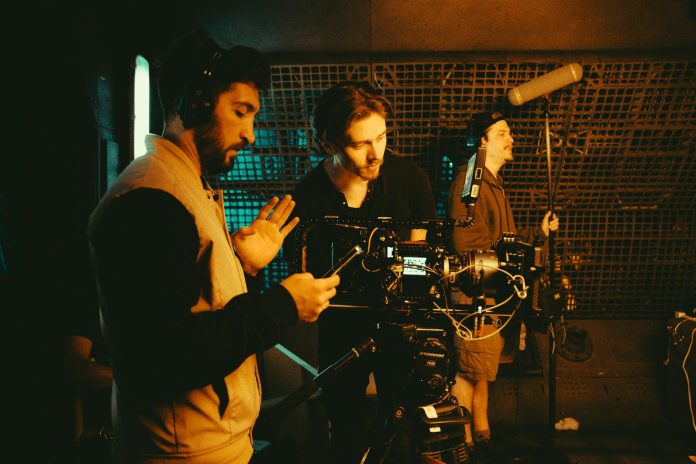Touring is a thrilling but demanding aspect of the entertainment industry. Whether it’s a rock band, a Broadway production, or a stand-up comedy troupe, every traveling show requires someone to manage the logistics, ensure everything runs smoothly, and take care of the countless details that come with moving a show from one location to another. That person is the tour manager—a key figure who wears many hats, balancing responsibility, organization, and crisis management. The role is pivotal, yet it often remains out of the spotlight, with the general public unaware of the amount of behind-the-scenes work involved.
This essay provides a glimpse into a typical day in the life of a tour manager, exploring the various tasks, challenges, and skills required to keep a traveling show on track. From early morning phone calls to late-night problem-solving, the day of a tour manager is anything but predictable.
- The Morning: Preparing for a Day on the Road
The day typically begins early for a tour manager. In many cases, the show may be traveling to a new city, and there’s a lot to do before the team can even think about stepping onto the stage.
Morning Briefings and Logistics:
One of the first tasks of the day is to check in with the crew, performers, and vendors. This may involve reviewing the schedule for the day, confirming hotel accommodations, transportation, and any local regulations that may impact the show. If the tour is in a different city, the tour manager will ensure that travel arrangements are in place for the next leg of the journey, whether it’s a bus ride, a flight, or a train trip.
The morning also involves coordination with the local venue. The tour manager will touch base with the venue’s technical staff to discuss details like load-in times, sound checks, and any specific requirements for the performance. This is particularly important when dealing with large-scale productions, where complex equipment setups, lighting rigs, and sound systems must be carefully coordinated.
Ensuring Compliance:
For musical tours or larger productions, tour managers also need to ensure that all contracts are in order. This includes reviewing agreements with venues, sponsors, and vendors, making sure that everything is signed and legally compliant. If there are any discrepancies in the contracts or potential issues, the tour manager will address these first thing in the morning to avoid any surprises later.
- Midday: On the Ground and On the Move
By mid-morning, the team is typically arriving at the venue, and the tour manager’s attention shifts to ensuring that the show’s logistical needs are being met. The hours between 9 AM and 2 PM are often the most intense, as this is when the show begins to come to life.
Venue Coordination and Setup:
One of the primary responsibilities of a tour manager at this stage is overseeing the load-in process. This involves supervising the unloading of equipment from the transport vehicles (often a bus, van, or truck), ensuring that all necessary items—from costumes to instruments—arrive safely and are accounted for. The crew and performers may be busy with rehearsals or sound checks, while the tour manager makes sure that everything goes according to schedule.
This is also when the tour manager has to ensure that there is a smooth transition between the crew and the technical staff at the venue. The venue will have its own lighting and sound personnel, and the tour manager acts as the liaison between the touring team and the local staff to ensure that all equipment is set up properly and that no time is wasted.
Handling Last-Minute Problems:
As with any live performance, problems are inevitable, and it’s the tour manager’s job to handle any issues that arise. From broken equipment to transportation delays, a successful tour manager must be a problem-solver at heart. Whether it’s contacting a local vendor to fix a broken microphone or helping performers get to their designated dressing rooms in time for rehearsals, there’s always a need for quick thinking and adaptability.
For example, if there is a last-minute change to the schedule, such as a delay in the opening of the venue, the tour manager will work with the venue and the performers to adjust the schedule. This could involve reworking the timing for sound checks or adjusting the show’s running order to accommodate the delay.
- Afternoon: The Calm Before the Storm
As the afternoon rolls around, there’s a brief lull in the action. The show is in its final stages of preparation, and the performers are likely in costume, rehearsing, or getting ready for the evening’s performance. This is a time when the tour manager can focus on tying up loose ends and ensuring everything is ready for showtime.
Team Support and Communication:
During this time, the tour manager checks in with the performers and crew. If anyone is experiencing issues—whether physical exhaustion, personal concerns, or logistical problems—the tour manager is there to offer support. This can involve coordinating breaks, ensuring proper meals are provided, or helping to manage any personal issues that may arise.
Additionally, the tour manager ensures that everyone is informed about the timing and schedule for the evening. From the performers to the backstage crew, everyone must know exactly what to do and when. This may include providing updates on the show’s start time, confirming the post-show transport arrangements, or distributing information about any special events happening after the performance.
Final Checks:
In the lead-up to showtime, the tour manager will also conduct a final review of all the logistics. This could involve confirming that the venue’s staff is in place and ready, that the local transportation for the performers is arranged, and that any special VIP guests or sponsors are accounted for.
- Evening: Showtime
When the clock ticks closer to showtime, the atmosphere can become tense. Everyone involved with the production—from the cast to the crew—has put in hours of hard work, and now it’s time for everything to come together.
Managing the Performance:
The tour manager’s role during the performance is largely one of oversight. While they won’t be involved in the direct performance or backstage activities, they remain on hand to manage anything that might go wrong. This can include dealing with last-minute requests from the performers, resolving technical issues, or managing unforeseen challenges that arise during the show.
Throughout the performance, the tour manager’s phone is likely buzzing with texts or calls related to logistics. They might need to coordinate transport for the performers after the show or ensure that tickets are available for last-minute VIPs. They are also responsible for ensuring that the post-show operations go smoothly—such as arranging for the crew to tear down the set and load the equipment back onto the transport vehicles.
VIP and Guest Management:
During the show, tour managers often handle VIPs and special guests, ensuring that they are properly taken care of. This can involve arranging special seating, organizing meet-and-greets with the performers, or making sure the guests have everything they need. It’s an important part of the tour manager’s job, as maintaining positive relationships with sponsors, media, and other stakeholders can help ensure future success.
- Late Night: Wrapping Up and Preparing for the Next City
Once the show is over, the tour manager’s work is far from done. The late hours of the night often involve overseeing the pack-down and travel arrangements for the next day.
Post-Show Responsibilities:
After the curtain falls, the tour manager ensures that everything is packed up, from equipment to merchandise, and that the crew is on schedule for the next move. This might include finalizing the transportation logistics for the crew and equipment, reviewing hotel bookings for the next city, and making sure everyone has a safe and comfortable place to rest.
Reflection and Planning:
Late at night, after all the immediate concerns are addressed, the tour manager may take a moment to review the day’s events. This can involve updating budgets, handling any last-minute payments, and planning for the next day’s activities. The manager will often communicate with the team about the next day’s itinerary, ensuring that everyone is prepared for the next leg of the tour.


